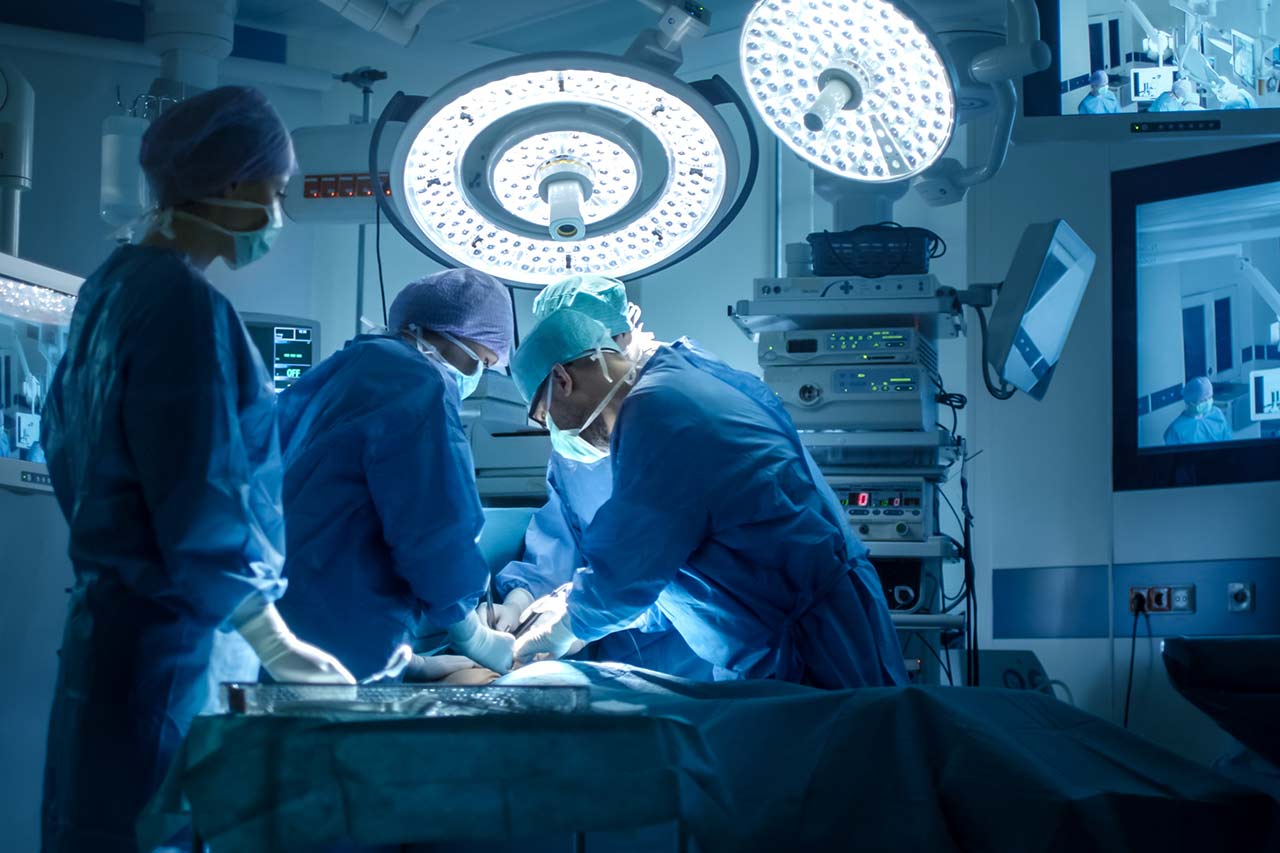Microbiota and caesarean: what challenges for child health?

Bacteria, viruses, fungi,… We often associate them with pathologies or poor health conditions. However, they play a crucial role in maintaining our own healthy. Indeed, these “superheroes”, called microbiota, affect immunity, diseases, allergies, sleep and even sports performance! So where does our microbiota come from? It originates from a transfer between mother and child that takes place during vaginal delivery: the mother transfers her vaginal microbiota to the baby, who has been growing for months in a sterile environment (placenta). However, according to the latest publication, 27% of births are not done vaginally but by caesarean section. As a result, these children do not benefit from the inheritance of their mother’s microbiota. So what are the consequences for these future adults? What are the possible strategies to ensure the proper development of the infant microbiota following a caesarean section? How does the biopharmaceutical market respond to these major challenges? At Alcimed, we have taken a close look at these issues, which could lead to the emergence of a new type of therapeutic solutions.
Caesarean delivery: a newborn’s microbiota disruptor, increasing the risk of immune diseases
Multiple studies have shown that the delivery mode plays a critical role in the composition of the infant microbiota. Indeed, the oral and skin microbiota of infants born by caesarean are less abundant and varies in composition in comparison to babies born vaginally. Child born by caesarean section will have a microbiota composed of bacteria present on the maternal skin and hospital environment while the child born vaginally will be colonized by vaginal bacteria (Lactobacillus) from the mother.
The baby’s microbiota will then gradually evolve and diversify during the first days and months of his life in order to adapt to the different parts of the body. This diversification will be achieved at a slower rate in children born by caesarean section. Following the introduction of solid foods after 6 months, the abundance of the infant microbiota increases and the differences observed by delivery mode tend to be less important.
The quality of the first bacterial colonization has a crucial role in shaping and developing the immune system. In fact, studies have shown that a microbial imbalance in infants severely disrupts the education of the immune system, increasing the risk of contracting immune diseases over the course of life. This was confirmed by epidemiological studies showing a higher risk of contracting immune diseases and allergies in subjects born by caesarean section (18% to 31% according to studies).
What are the current strategies to reduce the impact of caesarean on the newborn microbiota?
Several solutions are possible to reduce the risk of immune diseases associated with a caesarean birth.
- Breastfeeding is a natural approach to modify the microbial community. In fact, it has been shown that an exclusive consumption of breast milk in cesarian babies would transform their microbiome similarly to babies born vaginally. The beneficial effect of breast milk would be based on the presence of Lactoferrin and certain oligosaccharides that stimulate the growth of bacteria essential to the proper development of the child’s immune system (e.g. Bifidobacterium).
- Probiotics consumption. Another strategy is the direct consumption of these beneficial bacteria via probiotics. Studies have shown that some species of Lactobacillus, Bifidobacterieum or Propionibacteria may provide allergy protection in children born by caesarean.
- Transfer of the vaginal microbiota or vaginal seeding. Another promising solution is the transfer of the vaginal microbiota to the newborn directly after caesarean delivery by a “ vaginal seeding” technic. It consists of incubating gauze for 1 hour in the mother’s vagina and wiping this gauze on the newborn directly after delivery. Several ongoing clinicals studies in the US are testing the effectiveness of this technique in reducing the risk of immune diseases in children born by caesarean. Early results are encouraging and demonstrate that exposure to maternal vaginal bacteria (mainly Lactobacillus) following birth lead to the formation of a balanced microbiome in the months following caesarean section. It remains to be proven whether this positive effect on the microbiome reduces the risk of contracting immune diseases later in life of the newborn.
How does the pharmaceutical industry respond to this challenge?
Today, it is rather small players, only biotechs, who have taken an interest in this issue as shown by the collaboration between the British Columbia University and the biopharmaceutical startup PureTech Health, in particular its subsidiary “Commense Inc”. This collaboration will involve the implementation of a “microbiome-based” therapy to prevent asthma and other allergic diseases in children born by caesarean section by boosting the development of a balanced microbiome in a pediatric population.
Other startups (OmniBiome, Evolve BioSystems, Infant Bacterial Therapeutics) are also positioning themselves in the therapeutic solutions market for childhood microbiota by investing or developing innovative solutions to prevent, detect, diagnose and reduce the growing list of childhood conditions associated with caesarean. For example, Evolve BioSystems has developed Evivo, a new generation of probiotics for babies to be mixed with breast milk to stimulate and protect the microbial environment of the baby’s intestine. First results have proven that Evivo helps the development of a healthy immune system in babies.
More and more scientific studies demonstrate the importance of the infant microbiota and the harmful impact that caesarean section can have on child health. As this procedure is widely practiced worldwide, it is essential to reach sustainable solutions to reduce the risk of immune diseases and allergies. Thus, more and more biotechs are moving toward to develop therapeutic solutions to meet this unmet need. Beyond the ongoing development of microbiome-based therapies, hospital support in integrating new practices such as “vaginal seeding” could be expected.
About the author
Eugénie, Consultant in Alcimed’s Healthcare team in France
Do you have an exploration project?
Our explorers are ready to discuss it with you